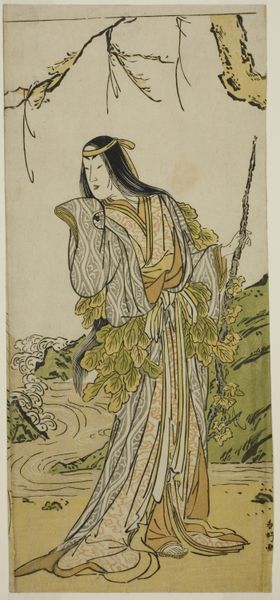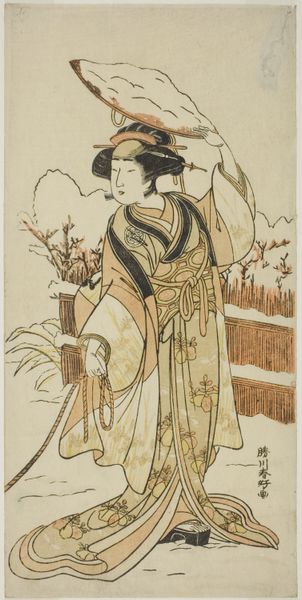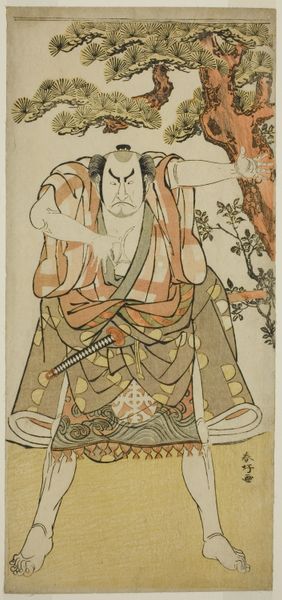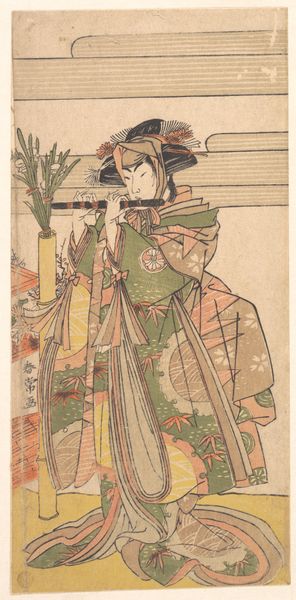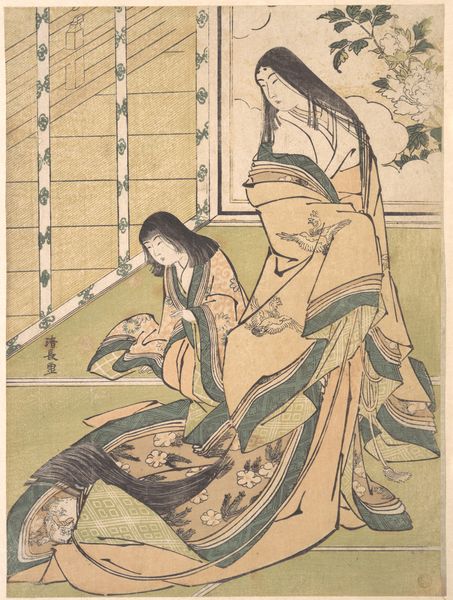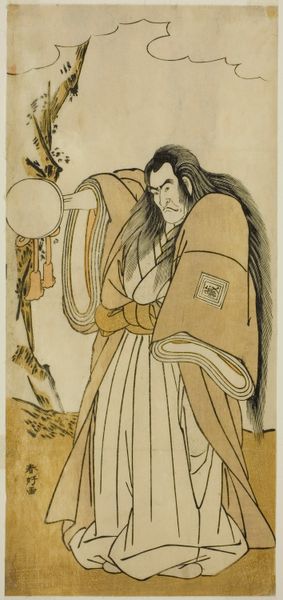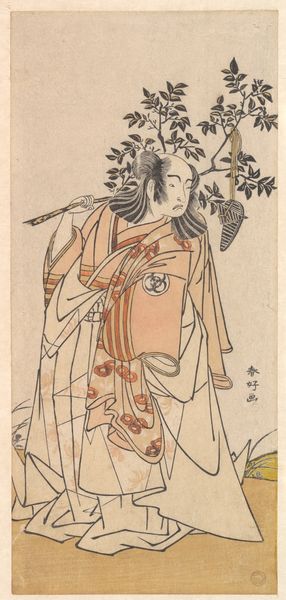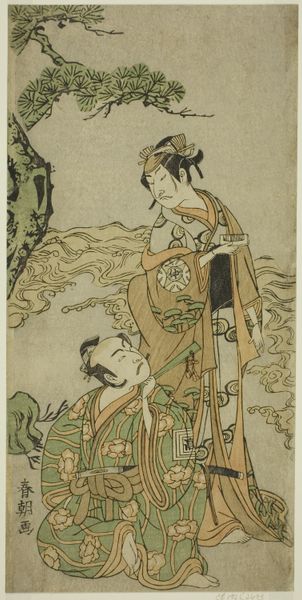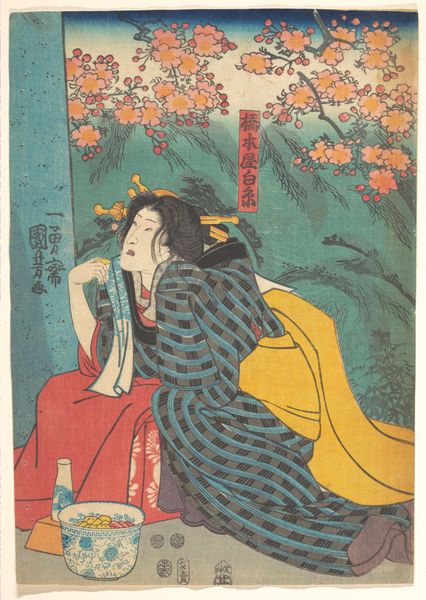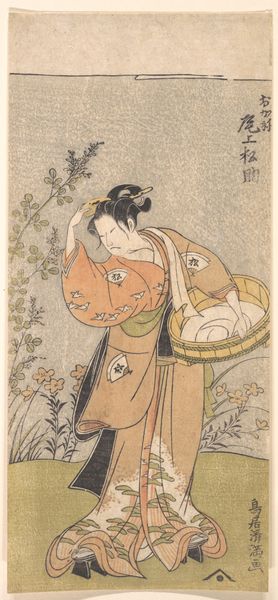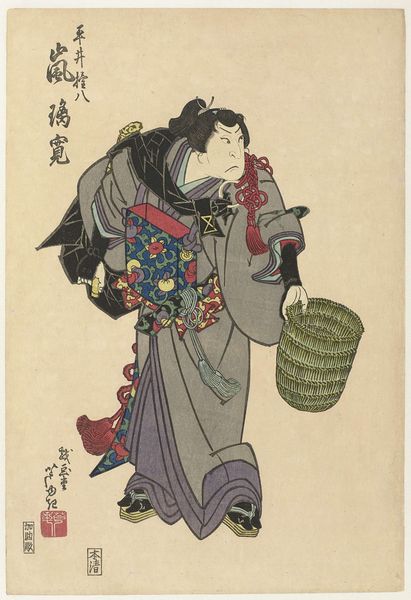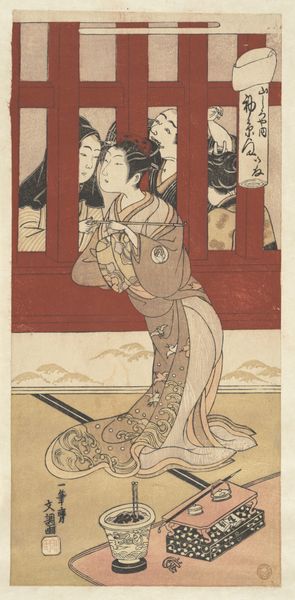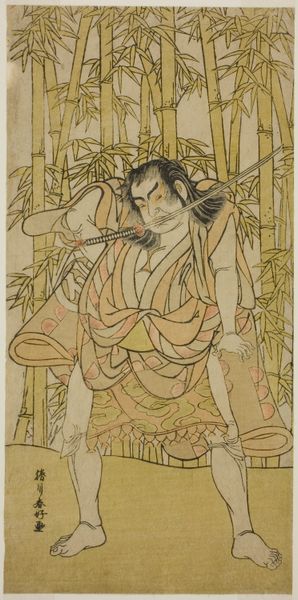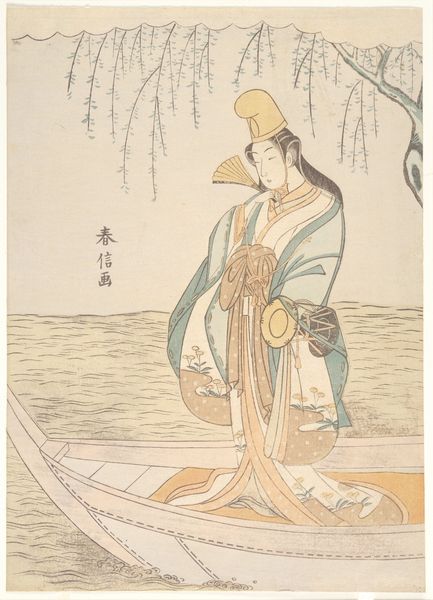
print, ink, woodblock-print
#
portrait
# print
#
asian-art
#
ukiyo-e
#
japan
#
figuration
#
ink
#
woodblock-print
Dimensions: 12 9/16 × 5 11/16 in. (31.9 × 14.4 cm) (image, hosoban)
Copyright: Public Domain
This image of the actor Ichikawa Danjūrō V was made by Katsukawa Shun'ei using woodblock printing, a quintessential technique of the Edo period in Japan. The method involves carving a design into a block of wood, applying ink to the raised surface, and then pressing paper against it to transfer the image. This is repeated for each color, requiring incredible precision. What sets woodblock prints apart is the relationship between the artist, the carver, and the printer; it is a collaboration in the service of production. The lines are crisp, the colors flat and vibrant, and the composition is carefully balanced to draw the viewer's eye. The image is compelling because of the labor involved in its making. Understanding this collaborative production helps us appreciate the artistry and skill involved in every impression and challenges the Western idea of the artist as a solitary genius.
Comments
minneapolisinstituteofart about 2 years ago
⋮
A pupil of Katsukawa Shunshō, Shun’ei started designing prints around 1778. Although his work is dominated by Kabuki subjects, both as single-sheet prints and as illustrations for playbills (banzuke), he is also admired for a series of women performing Kabuki dances and for his sumō-e, or pictures of wrestlers. Ichikawa Danjūrō V (1741–1806), perhaps the most celebrated Kabuki actor of all time, appears here in an unusual costume complete with dark, bumpy skin, and claws for toes and fingers. This costume has raised speculation that the image represents Danjūrō performing one of his favorite roles, that of the wizard Tenjiku Tokubei, whose powers permitted him not only to disappear, but also to turn into a giant toad.
Join the conversation
Join millions of artists and users on Artera today and experience the ultimate creative platform.
